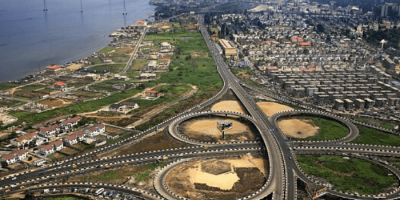Way Out Of Recession Series: Rethinking Infrastructure Development
Posted on Tue 21 Feb 2017
- Download Resource
-
The Institute of Appraisers and Cost Engineers, a division of The Nigerian Society of Engineers projected in 2015 that about US$2.9 trillion investment is needed, in the next 30 years, to close current infrastructure gap in the country. That same year, a former Minister of Finance and the Coordinating Minister for the Economy, Dr. Ngozi Okonjo Iweala stated that “to fund infrastructure, Nigeria needs about US$14 billion every year.
-
The Lagos Chamber of Commerce and Industry (LCCI) in 2016 estimated that, Nigeria’s infrastructure deficit is up to US$300 billion (about N5.91 trillion at the then exchange rates). This figure represented 25 per cent of the Gross Domestic Product in that period.
-
In a February 2017 editorial, BUSINESSDAY posited that “for Nigeria to close its infrastructure gap and bring itself up to the international benchmark for infrastructure stock, it needs to spend as much as $2.9 trillion in the next 30 years and 48 percent of this sum, representing $1.4 trillion, has to come from the private sector”.
Figures which have recently been given by other stakeholders and institutions, of our infrastructure spending needs, are equally staggering. Essentially, the AfDB in specific terms stated that, plugging the infrastructure gap in Nigeria for a period of 15 years between 2015 and 2030 would require the following:
-
Transport – A proposed expenditure of about US$710 billion to build new infrastructures in Roads, Railways, Ports, Shipping, Inland Waterways, Civil Aviation, Gas Transport, and Urban Transport Sectors.
-
Electric Power and Access to Energy – A proposed expenditure of US$40.9 billion during the period 2011-2020 for upgrading grid infrastructure for electricity transmission and rural electrification, to support adequate power generation, transmission and distribution.
-
Water Resources, Supply and Sanitation – A proposed expenditure of US$101 billion for developing infrastructures for Irrigation of agricultural farmland, and water supply to support lives and improve sanitation.
-
Information and Communication Technologies (ICT) – A proposed expenditure of about US$ 3.5 billion for expanding and building ICT infrastructure, for telecoms and internet services in the increasing urban centers; for better tele-density; for improved internet resources for online education and research institutions; as well as establishment of a national digital library and promotion of e-application, e-learning, e-governance and e-commerce.
-
Soft Infrastructure – According to the Infrastructure Consortium for Africa (2013), some measures are needed to support or accompany the production of physical infrastructure outputs, including research, enabling legislation, project preparation, and capacity building. The AfDB report estimated that these measures would cost about US$50 billion in Nigeria, in the period under consideration (2015 – 2030).













